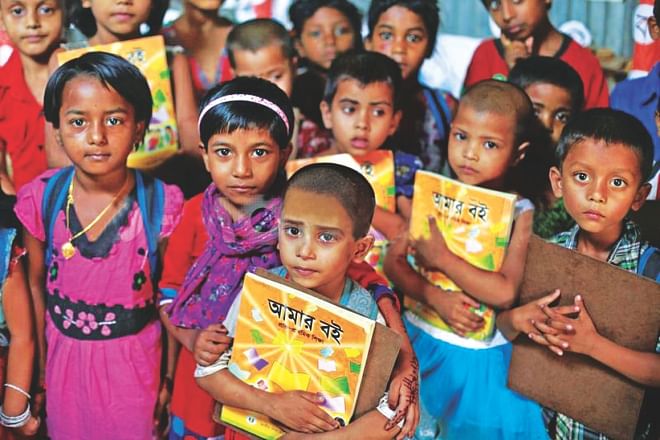Towards non-formal education

Many readers were surprised at the news as the cabinet asked the primary and mass education ministry to resubmit the draft “Non-formal Education Act 2014”. As reported in various newspapers, Cabinet Secretary M Musharraf Hossain Bhuiyan said that the cabinet asked the ministry to change the draft in accordance with the observations of the cabinet. Interestingly, the cabinet gave nod in principle to the draft in May last year. The proposed law aimed at bringing the existing non-formal education of the country under a legal framework.
The Constitution of Bangladesh recognises education as a fundamental right of every citizen and enjoins on the state “ to adopt effective measures for (a) establishing a uniform, mass- oriented and universal system of education and extending free and compulsory education to all children to such stage as may be determined by law; (b) relating education to the needs of society and producing properly trained and motivated citizens to serve those needs and (c) removing illiteracy within such time as may be determined by law”. Unfortunately, Bangladesh is one of the 10 countries accounted for almost three-quarters of the world's illiterate adults, according to the Education for All global monitoring report by UNESCO.
Despite tremendous progress in achieving MDG related to universal primary education, dropout from school is the major barrier in eradicating illiteracy in Bangladesh. The enrolment rate is now almost a hundred percent, but half the enrolled learners drop out of education before completing the primary cycle. Though there are efforts from both government and non-government actors to provide educational services for those learners, a legal framework has been absent so far.
Apart from those who drop from formal system, non-formal education also covers those who could not get formal education within their age of 14. The proposed law is aimed to bring the existing non-formal education under a legal framework and there will be an education board, 'Non-formal Education Board' under the proposed Act. The board will be responsible for the academic management in the sector.
Let alone non-formal education, spending in education is not encouraging comparing to other sectors. As revealed in “Education for All Global Monitoring Report of 2013-14” by UNESCO; Bangladesh has been among 25 countries which dedicate less than 3% of GNP to education. In terms of public spending on education, Bangladesh's condition was worse than some African countries as it appears in the report.
It is good that government is considering a legal framework for non-formal education sector. It is all the more pleasant that a separate education board is considered for this purpose. However, increased allocation is needed to remove illiteracy as enshrined in the constitution. Is the government ready to commit more for non-formal education?
The writer is a human rights worker.

 For all latest news, follow The Daily Star's Google News channel.
For all latest news, follow The Daily Star's Google News channel. 



Comments